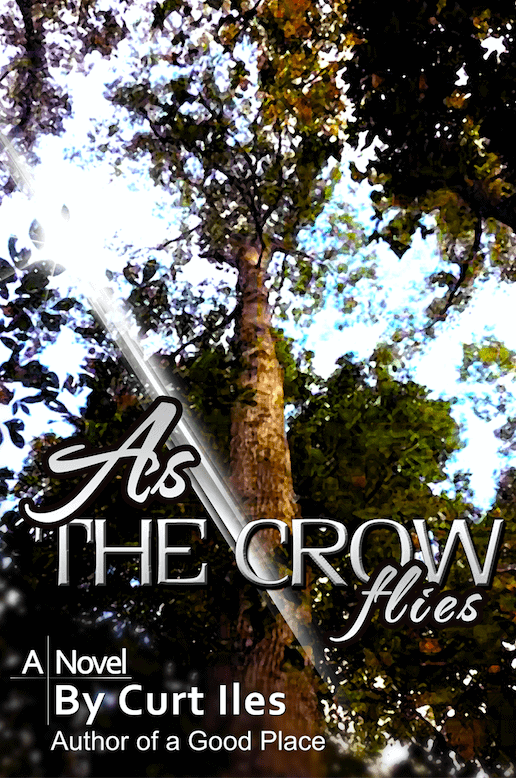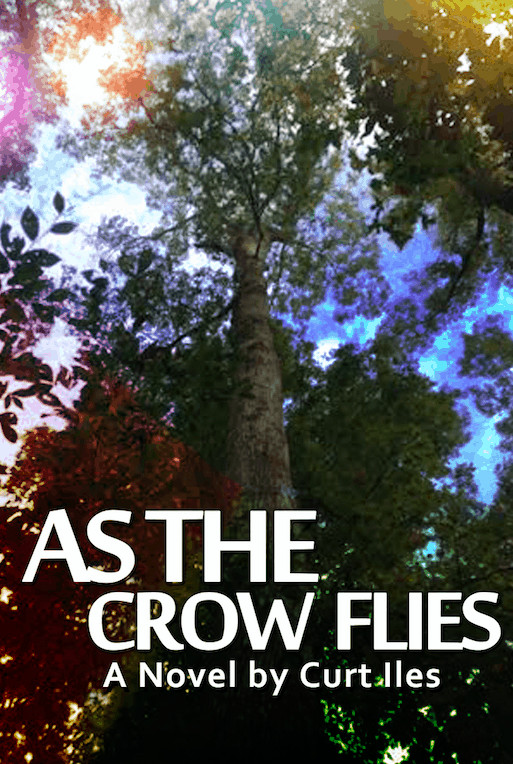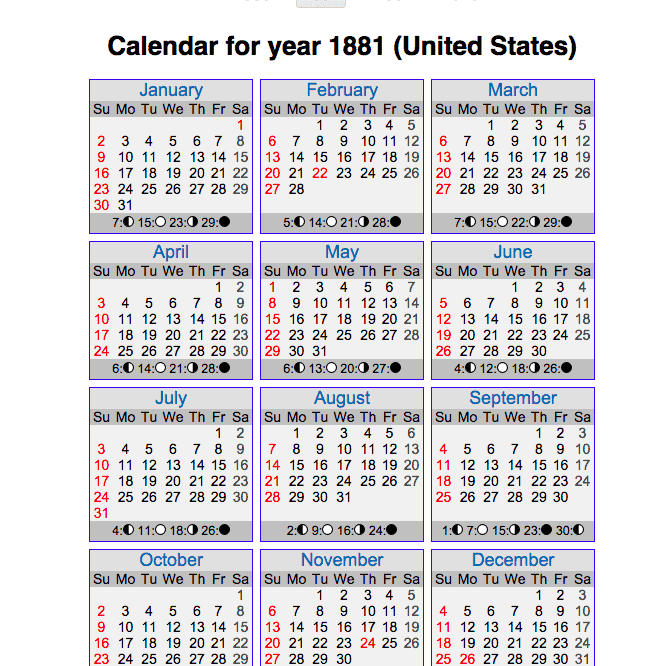As the Crow Flies
A Novel
by Curt Iles
current as of 6/1/16
copyright 2016 Creekbank Stories LLC and Curt Iles
CHAPTER 1 — AT THE RIVER
My name is Missouri Cotten, and I was born to thieves. Now, that I’ve got that out of the way, I’m ready to tell my story. I reckon the best place to start is at the edge of Louisiana’s No Man’s Land. As I recollect, I was nearly sixteen, and it was early October 1881 as my family waited on the Calcasieu River ferry. As usual, we were running from the law, armed with a new alias.
The Calcasieu River. It took me a while to learn to pronounce. It’s Cal-ka-SHOO. It’s kind of like a sneeze on the end. Cal-ca-SHOO. It’s not big as rivers go, but crossing it that day changed everything about my life and the destiny of my family/family tree. Rivers are a big part of history. At the time of my story, the late 19th century, rivers were barriers. Dividing people. It was a time before bridges. Myths, legends, and such.
When we crossed that river and walked into the middle of what folks still call the Westport Fight, our lives changed. Some for the better, a lot for the worse. Most importantly, my life took an unexpected turn and this is the story of how it happened. Some folks won’t agree with my version of the Fight, but I was there. In fact, I’m pretty sure that as of this writing, I’m the only living survivor of the Fight.
As the ferry unloaded a wagonload of corn, three horsemen hurried off, avoiding avoided eye contact with Pap, Ma, and me as they trotted past. They were dark men who seemed mysterious.
The stooped one-eyed ferryman nodded at Pap. “Where y’all headed?”
“Texas. How far is it?”
“As the crow flies, ’bout fifty miles to the next border river. THE SABINE. next . Normally a four-day wagon trip.” He sniffed at our rickety wagon with its mismatched team of an ox and a mule. “It’ll take y’all at least a week, especially with that buzzard-bait pair pulling you.” He wiped his hands on his faded bib overalls. “Where you coming from?”
“Alexandria. New Orleans before that,” Pap said, not adding that we were on the run from cons he’d pulled in both cities.
The ferryman continued his interrogation. “Why Texas?”
“Heard there’s good pickings there.”
The ferryman pointed westward across the river. “Well, first you got to pass through No Man’s Land.”
“What’s that?”
“It’s the outlaw strip between this here river and the Texas border.”
I edged closer to the ferryman at the mention of outlaw strip.
“The part of Louisiana you’re entering ain’t got much law or civilization.” The ferryman spat. “By the way, what’s your name?”
“Whoa now, feller,” Pap said. “You taking a census or something?” Pap, who’d been drinking, was already approaching his surly stage.
The ferryman raised his hand. “No offense meant. It’s just my job to know who’s crossing the river.” He glanced at Ma and me. “I want the two women’s names in case we need to notify y’all’s next of kin.”
“We’re the . . . we’re the Cotten family.” Pap wasn’t quite yet used to our new alias. Previous to this, we’d been the Whitehead family, and the similarity made him hesitate. “I’m Henry Cotten. This here’s my wife, Eula Mae, and our daughter, Missouri.
While the ferry loaded, a flock of crows circled our wagon. Ma used her hand to shield her eyes from the sun. “Those crows are a sign.”
Pap’s hackles rose. “Woman, I don’t wanna hear none of that flapdoodle.”
She waited until he walked down to the river, then turned to me. “Missouri, those crows are a sure sign. We oughta go back.” Several of the crows landed, cawing and hopping about on the red clay road. Ma pointed at them as if they were people bearing bad news. “They been following us for a while. Look at that-there one with the bad wing. It’s trying to tell us something.”
I leaned closer. “Ma, talk softer.”
“They’re a murder of crows.”
I shook my head. “I thought crows were called a flock?”
Her eyes widened. “That murder of crows is trying to warn us.” She knelt, drawing in the dirt with a stick. “Folks are gonna die.”
“Where?”
She pointed her stick. “Across that river. Listen to that bad-winged crow. It’s laughing at us.” As if in reply, the bird hopped up on a fencepost, cawing louder.
I grabbed Ma’s arm. “Pap’s getting whiskeyed-up. Don’t say anything to make him do something crazy.”
She stepped toward the wagon. “Whiskey don’t make him do nothing. It just lets him.”
“Well, let’s not rile him.”
Pap was rolling a cigarette but his hands were shaking so bad, he was spilling most of the tobacco as he mumbled, “We should be safe across this river.”
* * *
As you can tell, my parents, Pap and Ma, were always at it. If one said, “cat”, the other one said, “dog.” There was never a moment’s peace.
I told you that I was born into a family of thieves, but let me drive down a peg and correct myself: Pap, my daddy, was the thief—a gifted con artist and swindler of the first degree. Like all thieves, Pap was always looking over his shoulder, which explained our gypsy-like existence.
Pap was a complex man. He had the gift of gab that confidence men possess. When sober, he could be decent. However, when tanked up on cheap whiskey like today, he was mean as a black snake.
Ma never stole, but was sometimes his accomplice. Her gift was as a seer and a healer. She was what the Louisiana Cajuns called a traituer. Ma was from a long line of Indian healers. These secrets had been passed down through generations: using scripture to stop bleeding, rubbing a burn out, curing poison ivy, and other folk-healing methods. She called it her gift. These oft-misunderstood skills caused nearly as much trouble as Pap’s stealing. She swore her skill, which she called The Touch, came from God. Some folks agreed with this assessment while others suspiciously viewed them as instruments of the Devil.
Ma was determined to pass these gifts to me, claiming only her daughter could inherit her skills. Currently, she was trying to teach me the art of staunching bleeding. I’d have rather fought a grizzly bear than to get in the middle of her healings.
Ironically, while Ma did the healing, Pap was doing the stealing. Often among the same folks.
So that day at the river ferry, I was standing beside two of the most complicated people in all of North America.
* * *
Standing by the ferry, Pap pointed at a red sign nailed to a cypress tree. “What’s that say?”
I walked closer. “This river is the Calcasieu, and the crossing is called Hineston Ferry. The fare’s a dollar.” I pointed at a hand-scrawled sign below the red one. “That other sign says, Abandon hope all ye that enter here.”
“Sounds like our kind of place,” Pap said.
Hope. What a word. I hadn’t had it in a long time and had no illusions that the next leg of our sojourn would be any different.
The ferryman whistled. “Load up. We’re ready.”
Pap climbed up on the wagon beside Ma and me. They sat on each end of the buckboard, each leaning out to see behind the canopy. Ma was trying to see those crows while Pap was looking for a sheriff’s posse.
Pap clucked to the team. The wagon hesitated, jerked, and then pulled down the riverbank and onto the ramshackle ferry.
Ma, in her red-alert-omen-state, stared at the ferryman and whispered, “I don’t like his evil eye. We should turn around.”
“Too late for that,” Pap said.
He was right. Once we crossed this river into No Man’s Land, there’d be no turning back. We were leaving the open cotton and plantation country of the lower Mississippi River valley for a different land: a land of piney woods and few people.
From the ferry deck, I kicked a pile of dried sweet-gum leaves into the muddy river. They floated together, swirled around, and finally disappeared.
The ferry eased into the river’s swift current, struggling to reach the far shore. As soon as we bumped against the other bank, Pap paid the fare and hurried our team up the cut bank. The animals strained to get traction and move the wagon out of the loose sand.
As we reached level ground, the ferryman waved. “Good luck. Stay on the road and keep moving.”
Pap coughed, and as he drove away, said, “Passed ol’ evil eye a counterfeit note.”
I squeezed between them on the buckboard. We jostled along the narrow rutted road, our wagon’s squealing rear wheel announcing our presence. Pap
grimaced. “That back axle’s not goin’ to take us much farther.”
Soon our wagon passed out of the hardwood bottom into an endless green canopy of towering pines, their tops blocking out the sun, casting the forest into cool shade. The only sound was the steady wind in the crown of the pines and our creaking wagon rolling on the thick carpet of pine straw. When we stopped to rest the team, the eerie silence filled me with dread. This was so different from the plantation and cotton country where we’d been for the last year. I fully understood why it was called No Man’s Land. This was a place where humans were unwelcome.
Ma broke the silence. “I’m sure tired of listening to that squealing metal.”
“No worse than your griping,” Pap said. “Some people’d complain if you hung ’em with a new rope.” Squeezed between them was a dangerous spot when they were sparring, which was most of the time they were awake.
“I told you to get some axle grease,” Ma said. “I can smell the wheel burning.”
Pap clenched his fist. “Woman . . . shut your mouth.”
“It would not’ve hurt none to’ve asked a passing wagon for a little grease.”
“I don’t wanna hear no more of your sass.”
“But I just—”
“Shut up, or I’ll shut you up.”
We rode in relative silence for the next mile or so. Suddenly the wagon jolted to a stop. The wheel had finally frozen up.
Pap pulled to the side of the trail near a creek with no more than a trickle of water. While he was under the wagon, Ma complained about life in general and Pap in particular.
“Then why in the world do you stay with him?”
“Because he’s my husband . . . and uh, your Pap.”
“You could do better.”
“Maybe so. He ain’t the kind of man I wanted, but he’s the kind of man I got.”
“I believe I’d cut his throat one night while he’s sleeping off a drunk.”
“Don’t talk about your Pap like that.”
“Or I’d cut my own throat.”
“Girl, hush that. Besides, I lean on him when I’m crazy, and he leans on me when he’s drunk.”
“What about when you’re both off?”
We lean on each other.
“Well, if that’s what marriage is, I believe I’ll pass.”
After several minutes under the wagon, Pap crawled out. “This is as far as we’re going for now. .”
“We should’ve turned back,” Ma said.
As if in recognition of our predicament, dusk fell and a cold rain began. I slipped off the wagon, grabbed a bucket, and headed to draw water from the creek.
Claws, our wagon cat, hopped down and followed me. She meowed hungrily.
“Yep, you’re hungry. So am I.”
Rain dripped from the trees, and the rain frogs croaked their gratitude for the change in the weather.
Across the creek, a distant crow called.
The cat rubbed against my leg.
“Did you hear that, Claws?”
The crow, now closer, called again. A neighboring bird cawed from near our wagon.
I shivered, wondering if Ma had heard it too.
These are two mock covers of our upcoming novel, As the Crow Flies.


Which cover grabs your eye?
How could we combine the best aspects of the two covers into one?
Post your comments and input below.
Our current project is the first draft of the novel, As the Crow Flies.
This novel is the third in what we’re calling the Westport Series. The earlier novels, The Wayfaring Stranger and A Good Place, set the stage for this Louisiana historical novel set in 1881.
You can help us out with naming characters, plot lines, corrections, and just good encouragement.
Join us for in putting this story into words.

Here is the current draft opening line of my current novel, As the Crow Flies:
Chapter 1
My name is Missouri Cotten, and I was born into a family of thieves.
It’s how I ended up in the middle of what came to be known as the Westport Fight. This is my story of what happened on that cold Christmas Eve way back in 1881.
Some folks won’t like my recollections.
But it’s my story.
And it’s time I told it.
I know because I was there.
I saw it all.
From the opening lines, what word would describe her personality? ____________.
Email me at creekbank.stories@gmail.com with your ideas and input or contact us below:
Post Contact Form
This goes at the bottom of some posts
![]()
 Creekbank Stories Curt Iles, Storyteller
Creekbank Stories Curt Iles, Storyteller
